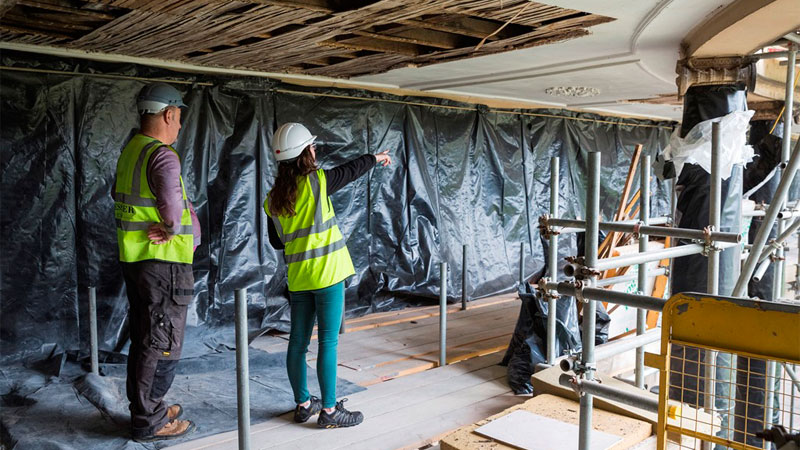|
Teaching the construction sector the necessary skills to retrofit the UK’s heritage structures could provide the British economy with a £35bn boost, a new report has suggested

Tom Anstey | Planet Attractions | 09 Mar 2023

 Teaching retrofit skills for heritage buildings could provide a significant economical boost Credit: National Trust Images/James Dobson Teaching retrofit skills for heritage buildings could provide a significant economical boost Credit: National Trust Images/James Dobson
A new report has suggested that teaching the construction sector the necessary skills to retrofit heritage buildings in the UK could lead to an annual economic boost of £35bn (US$41.7bn, €39.4bn), supporting around 290,000 jobs in the process.
Produced by a collective including the National Trust, Peabody, Historic England, The Crown Estate and property group Grosvenor, the report highlights the social, environmental and economic benefits that upskilling the construction heritage workforce could bring to decarbonising the country.
According to the report, the retrofitting strategy would help the UK achieve its net zero targets by improving the energy efficiency of heritage buildings, as well as improving general health and wellbeing.
“Heritage buildings represent the UK’s rich cultural and historic legacy,” reads the report.
“For hundreds of years people have acted as stewards of these buildings, contending with challenges that emerged and adapting them, ensuring future generations could continue to enjoy the cultural and economic benefits they bring to society.
“For our generation, ensuring the UK’s heritage buildings can play their part in a low carbon sustainable future is one of the most significant contributions we can make to preserving the country’s heritage.”
The report concludes that the government should work with industry on a national retrofit strategy that includes skills, training, funding, standards and advice that will provide long-term capacity for businesses, training providers and local government.
It also suggests making the existing apprenticeship levy funding more flexible by allowing unspent funds to be used to improve the reach and delivery of existing retrofit qualifications in the supply chain. It backs this up by pointing out that between May 2019 and July 2022, £3.3bn (US$3.9bn, €3.7bn) of unused Apprenticeship Levy was returned to the Treasury.
“Our research has identified a need for 205,000 workers to focus solely on retrofitting historic buildings every year from now until 2050 in order to meet the UK’s net zero targets,” says the report.
“This is more than double the number of workers we estimate currently have the necessary skills.
“Whilst a significant challenge, the opportunities this represents considerably outweigh the scale of the task.
“Making these buildings energy efficient will stimulate spending in the construction industry, support around 290,000 jobs in supply chains and boost heritage-related tourism and hospitality.”
To read the full report, click here
Heritage
|
|






Hole in One: How Holovis is changing the game with 360Golf
|